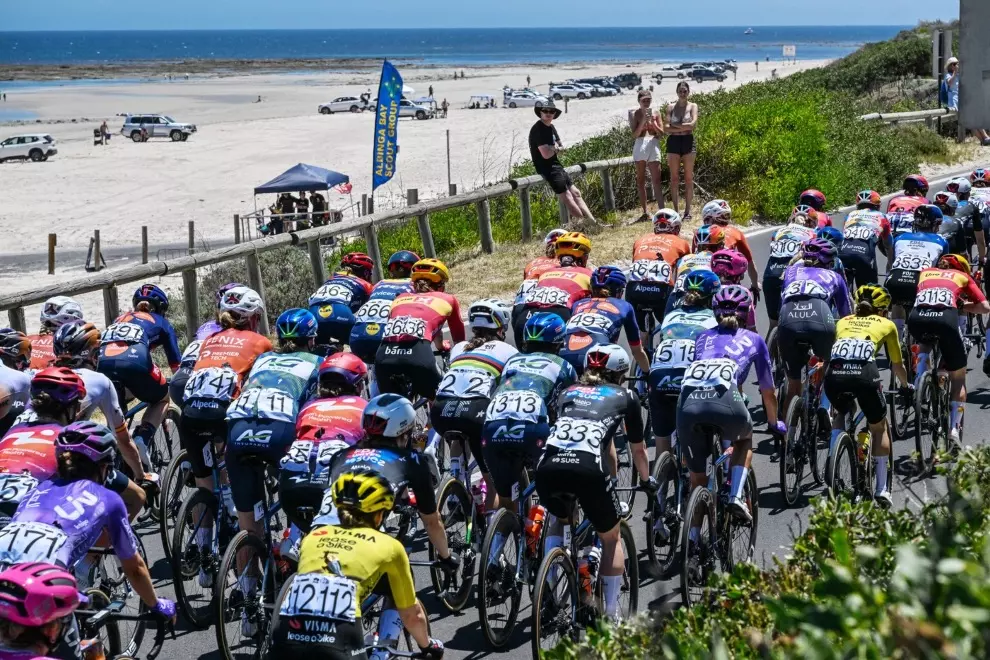Sleep-deprived, saddle-sore, and somewhere between hallucination and exhaustion, ultra-distance cyclists push far beyond normal physical limits. In races that stretch for a thousand kilometres, they are battling a different enemy. Their true challenger is the mind. The loud inner voice citing the endless number of reasons to slow down or quit is bad enough during regular, single-day races that I’ve experienced. It’s hard for me to imagine how they cope in these ultra-cycling scenarios that I’ve never done myself.
Maybe you have to be there and experience it to find your way to deal with it. That’s why I will let the seasoned veterans speak for me in this article. Some of their strategies may seem obvious, some are quite surprising and are making me want to try it for myself.
The highs and the lows will pass
“There are lots of highs and lows, and the lows are a challenge. But because I’ve done so many races, I know that the hard moments won’t last forever. I’ll accept that the next hour or so will be rough, but that it will pass. I check in with myself; ultimately, if I’m giving it my all, then that’s all I can do, and it’s important to remind yourself of that. Sometimes I’ll listen to music or an audiobook, eat a snack—little things to uplift my mood and make the best of it. I work hard to avoid negativity, as that doesn’t help anything. Once you get through those dark hours, there’s always something beautiful that comes up, and I’m quickly reminded how lucky I am to have these experiences.” – Lael Wilcox (@laelwilcox).
It’s like having a newborn baby
“Most things that go wrong can be sorted out by just keeping on pedalling. It is a bit like having a newborn baby. There’s only ever a couple of things that could be wrong: Am I hungry? Am I tired? Am I thirsty? Do I need to go to the toilet? I quickly figured out there are certain times of day that I do better. I can ride all night and morning and feel great. Come late afternoon, my pace slows, and I start to hurt. Because I am aware of the time of day when I feel like this, I can be more gentle on myself or more stern, but I just keep pedalling and finding ways to get through it.” – Emily Chappell (@emilyofchappell) for Outside Magazine.
Playing games with yourself
“At night, if you see a blinking light, your mind goes from sleepy to chase mode. Something switches, and you’re like, ‘let’s do it.’ You have to play games with yourself to keep yourself motivated. You can get into this bikepacking mode and then you start relaxing, taking more breaks and everything.” – Sherry Cardona (@sherry.cycling)
Hallucinations
Hallucinations are nothing rare if an ultra-race lasts longer than two nights. Here is what Lachlan Morton described after Badlands, a 720 km gravel race through the desert lands of southern Spain.
“The second night, that’s when it starts to get really loopy. You start to think, who’s left a suitcase in such a strange place? I could hear music. I was looking around, looking for this small town where they were playing music. I started to get worried. I had this sensation. It was a very clear night and I could see all of the stars, but the stars were a roof just above my head. Time started to pass in a really slow way. Five minutes felt like 45 minutes. It felt like I was stuck for a really long period.” – Lachlan Morton (@lachlanmorton) for The Sunday Times.
The fear of failure
“When I’m injured, when everything is going wrong, don’t give me a Mohammed Ali quote. Don’t tell me to be happy, don’t tell me to be positive. You know, I’m scared. The fear of failure is far, far greater than the inspiration of success. But it doesn’t make you positive, inspired, happy. And I think it’s so important to call it what it is, and to stop telling people to high-five, be happy and be more positive in high-pressure situations. That’s not helpful.” – Mark Beaumont (@mrmarkbeaumont) for the Crisis What Crisis podcast.
One hour at a time
“I take it an hour at a time, enjoy the scenery, pay attention to my body, stay busy with taking care of myself, finding food and water, a place to sleep. You can’t think about the long term or you’ll never finish. There will be bad days when you suffer and you’re not riding well. I just keep moving and don’t let those low times stop me. You will experience the full spectrum of emotions throughout the race, and your mood can change from one minute to the next.” – Steffen Streich (@steffen_streich) for Outside Magazine.







